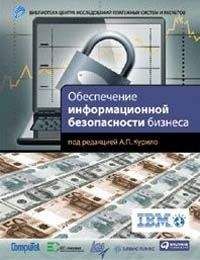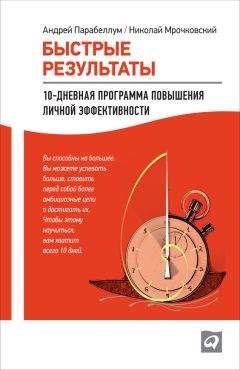Andrew Lobaczewski - Political Ponerology: A Science on the Nature of Evil Adjusted for Political Purposes
scribed it within the indispensable scope, adaptation, and selec-
tion of data, so as to enable clarification of the problems to be
discussed later in the book. Perhaps the future will make it
possible to elaborate a general theoretical work.
CHAPTER I
INTRODUCTION
May the reader please imagine a very large hall in an old
Gothic university building. Many of us gathered there early in
our studies in order to listen to the lectures of outstanding phi-
losophers and scientists. We were herded back there – under
threat - the year before graduation in order to listen to the in-
doctrination lectures which recently had been introduced.
Someone nobody knew appeared behind the lectern and in-
formed us that he would now be the professor. His speech was
fluent, but there was nothing scientific about it: he failed to
distinguish between scientific and ordinary concepts and
treated borderline imaginings as though it were wisdom that
could not be doubted. For ninety minutes each week, he
flooded us with naive, presumptuous paralogistics and a patho-
logical view of human reality. We were treated with contempt
and poorly controlled hatred. Since fun-poking could entail
dreadful consequences, we had to listen attentively and with
the utmost gravity.
The grapevine soon discovered this person’s origins. He had
come from a Cracow suburb and attended high school, al-
though no one knew if he had graduated. Anyway, this was the
first time he had crossed university portals, and as a professor,
at that!
“You can’t convince anyone this way!” we whispered to
each other. “It’s actually propaganda directed against them-
34
INTRODUCTION
selves.” But after such mind-torture, it took a long time for
someone to break the silence.
We studied ourselves, since we felt something strange had
taken over our minds and something valuable was leaking
away irretrievably. The world of psychological reality and
moral values seemed suspended as if in a chilly fog. Our hu-
man feeling and student solidarity lost their meaning, as did
patriotism and our old established criteria. So we asked each
other, “are you going through this too”? Each of us experienced
this worry about his own personality and future in his own
way. Some of us answered the questions with silence. The
depth of these experiences turned out to be different for each
individual.
We thus wondered how to protect ourselves from the results
of this “indoctrination”. Teresa D. made the first suggestion:
Let’s spend a weekend in the mountains. It worked. Pleasant
company, a bit of joking, then exhaustion followed by deep
sleep in a shelter, and our human personalities returned, albeit
with a certain remnant. Time also proved to create a kind of
psychological immunity, although not with everyone. Analyz-
ing the psychopathic characteristics of the “professor’s” per-
sonality proved another excellent way of protecting one’s own
psychological hygiene.
You can just imagine our worry, disappointment, and sur-
prise when some colleagues we knew well suddenly began to
change their world view; their thought-patterns furthermore
reminded us of the “professor’s” chatter. Their feelings, which
had just recently been friendly, became noticeably cooler, al-
though not yet hostile. Benevolent or critical student arguments
bounced right of them. They gave the impression of possessing
some secret knowledge; we were only their former colleagues,
still believing what those “professors of old” had taught us. We
had to be careful of what we said to them. These former col-
leagues soon joined the Party.
Who were they, what social groups did they come from,
what kind of students and people were they? How and why did
they change so much in less than a year? Why did neither I nor
a majority of my fellow students succumb to this phenomenon
and process? Many such questions fluttered through our heads
POLITICAL PONEROLOGY
35
then. It was in those times, from those questions, observations
and attitudes that the idea was born that this phenomenon could
be objectively studied and understood; an idea whose greater
meaning crystallized with time.
Many of us newly graduated psychologists participated in
the initial observations and reflections, but most crumbled
away in the face of material or academic problems. Only a few
of that group remained; so the author of this book may be the
last of the Mohicans.
It was relatively easy to determine the environments and
origins of the people who succumbed to this process, which I
then called “transpersonification”. They came from all social
groups, including aristocratic and fervently religious families,
and caused a break in our student solidarity to the order of
some 6 %. The remaining majority suffered varying degrees of
personality disintegration which gave rise to individual search-
ing for the values necessary to find ourselves again; the results
were varied and sometimes creative.
Even then, we had no doubts as to the pathological nature of
this “transpersonification” process, which ran similar but not
identical in all cases. The duration of the results of this phe-
nomenon also varied. Some of these people later became zeal-
ots. Others later took advantage of various circumstances to
withdraw and re-establish their lost links to the society of nor-
mal people. They were replaced. The only constant value of the
new social system was the magic number of 6 %.
We tried to evaluate the talent level of those colleagues who
had succumbed to this personality-transformation process, and
reached the conclusion that, on average, it was slightly lower
than the average of the student population. Their lesser resis-
tance obviously resided in other bio-psychological features
which were most probably qualitatively heterogeneous.
I found that I had to study subjects bordering on psychology
and psychopathology in order to answer the questions arising
from our observations; scientific neglect in these areas proved
an obstacle difficult to overcome. At the same time, someone
guided by special knowledge apparently vacated the libraries of
anything we could have found on the topic; books were in-
dexed, but not physically present.
36
INTRODUCTION
Analyzing these occurrences now in hindsight, we could say
that the “professor” was dangling bait over our heads, based on
specific psychological knowledge. He knew in advance that he
would fish out amenable individuals, and even how to do it, but
the limited numbers disappointed him. The transpersonification
process generally took hold only when an individual’s instinc-
tive substratum was marked by pallor or certain deficits. To a
lesser extent, it also worked among people who manifested
other deficiencies in which the state provoked within them was
partially impermanent, being largely the result of psychopatho-
logical induction.
This knowledge about the existence of susceptible individu-
als and how to work on them will continue being a tool for
world conquest as long as it remains the secret of such “profes-
sors”. When it becomes skillfully popularized science, it will
help nations to develop immunity. But none of us knew this at
the time.
Nevertheless, we must admit that in demonstrating the
properties of this process to us in such a way as to force us into
in-depth experience, the professor helped us understand the
nature of the phenomenon in a larger scope than many a true
scientific researcher participating in this work in other less
direct ways.
~~~
As a youth, I read a book about a naturalist wandering
through the Amazon-basin wilderness. At some moment a
small animal fell from a tree onto the nape of his neck, clawing
his skin painfully and sucking his blood. The biologist cau-
tiously removed it -- without anger, since that was its form of
feeding -- and proceeded to study it carefully. This story stub-
bornly stuck in my mind during those very difficult times when
a vampire fell onto our necks, sucking the blood of an unhappy
nation.
Maintaining the attitude of a naturalist, while attempting to
track the nature of macrosocial phenomenon in spite of all ad-
versity, insures a certain intellectual distance and better psy-
chological hygiene in the face of horrors that might otherwise
be difficult to contemplate. Such an attitude also slightly in-
creases the feeling of safety and furnishes an insight that this
POLITICAL PONEROLOGY
37
very method may help find a certain creative solution. This
requires strict control of the natural, moralizing reflexes of
revulsion, and other painful emotions that the phenomenon
provokes in any normal person when it deprives him of his joy
of life and personal safety, ruining his own future and that of
his nation. Scientific curiosity therefore becomes a loyal ally
during such times.
~~~
Hopefully, my readers will forgive me for recounting here a
youthful reminiscence that will lead us directly into the subject.
My uncle, a very lonely man, would visit our house periodi-
cally. He had survived the great Soviet Revolution in the
depths of Russia, where he had been shipped out by the Czarist
police. For over a year he wandered from Siberia to Poland.
Whenever he met with an armed group during his travels, he
quickly tried to determine which ideology they represented,
white or red, and thereupon skillfully pretended to profess it.
Had his ruse been unsuccessful, he would have had his head
blown off as a suspected enemy sympathizer. It was safest to
have a gun and belong to a gang. So he would wander and war
alongside either group, usually only until he found an opportu-
nity to desert westward toward his native Poland, a country
which had just regained its freedom.
When he finally reached his beloved homeland again, he
managed to finish his long-interrupted law studies, to become a
decent person, and to achieve a responsible position. However,
he was never able to liberate himself from his nightmarish
memories. Women were frightened by his stories of the bad old
days and thought it would make no sense to bring a new life
into an uncertain future. Thus, he never started a family. Per-
haps he would have been unable to relate to his loved ones
properly.
This uncle of mine would recapture his past by telling the
children in my family stories about what he had seen, experi-
enced and taken part in; our young imaginations were unable to
come to terms with any of it. Nightmarish terror shuddered in
our bones. We would think of questions: why did people lose
all their humanity, what was the reason for all this? Some sort
38
INTRODUCTION
of apprehensive premonition choked its way into our young
minds; unfortunately, it was to come true in the future.
~~~
If a collection were to be made of all those books which de-
scribe the horrors of wars, the cruelties of revolutions, and the
bloody deeds of political leaders and their systems, many read-
ers would avoid such a library. Ancient works would be placed
alongside books by contemporary historians and reporters. The
documentary treatises on German extermination and concentra-
tion camps, and of the extermination of the Jewish Nation,
furnish approximate statistical data and describe the well-
organized “labor” of the destruction of human life, using a
properly calm language, and providing a concrete basis for the
acknowledgement of the nature of evil.
The autobiography of Rudolf Hoess, the commander of
camps in Oswiecim ( Auschwitz) and Brzezinka ( Birkenau), is a
classic example of how an intelligent psychopathic individual
with a deficit of human emotion thinks and feels.
Foremost among these would be books written by witnesses
to criminal insanity such as Arthur Koestler’s Darkness at
Noon, from prewar Soviet life; Smoke over Birkenau the per-
sonal memories of Severina Szmaglewska5 from the Oswiecim
German concentration camp for women; The Other World, the
Soviet memoires of Gustav Herling-Grudzinski6; and the Solz-
henitsyn volumes turgid with human suffering.
The collection would include works on the philosophy of
history discussing the social and moral aspects of the genesis of
evil, but they would also use the half-mysterious laws of his-
tory to partly justify the blood-stained solutions. However, an
5 Szmaglewska, Seweryna, 1916-92, writer; 1942-45 prisoner in Nazi con-
centration camps; wrote Dymy nad Birkenau (Smoke over Birkenau, 1945);
witness at Nuremberg Trial; stories and novels mainly concerned with war
and occupation: Zapowiada sie piekny dzien (Looks Like a Beautiful Day,
1960), Niewinni w Norymberdze (The Innocent at Nuremberg, 1972); novels
for young people; anthology of memoirs 1939-45: Wiezienna krata (Prison
Bars, 1964). [Editor’s note.]
6 Herling-Grudzinski, Gustav: Polish writer who after WWII lived in Napoli,
Italy. Married the daughter of well known Italian philosopher Benedetto
Croce. He wrote an account of his time in a Soviet gulag: A World Apart.




